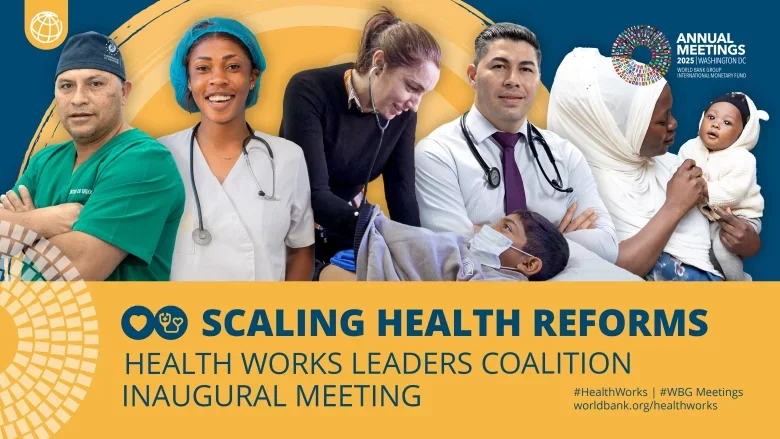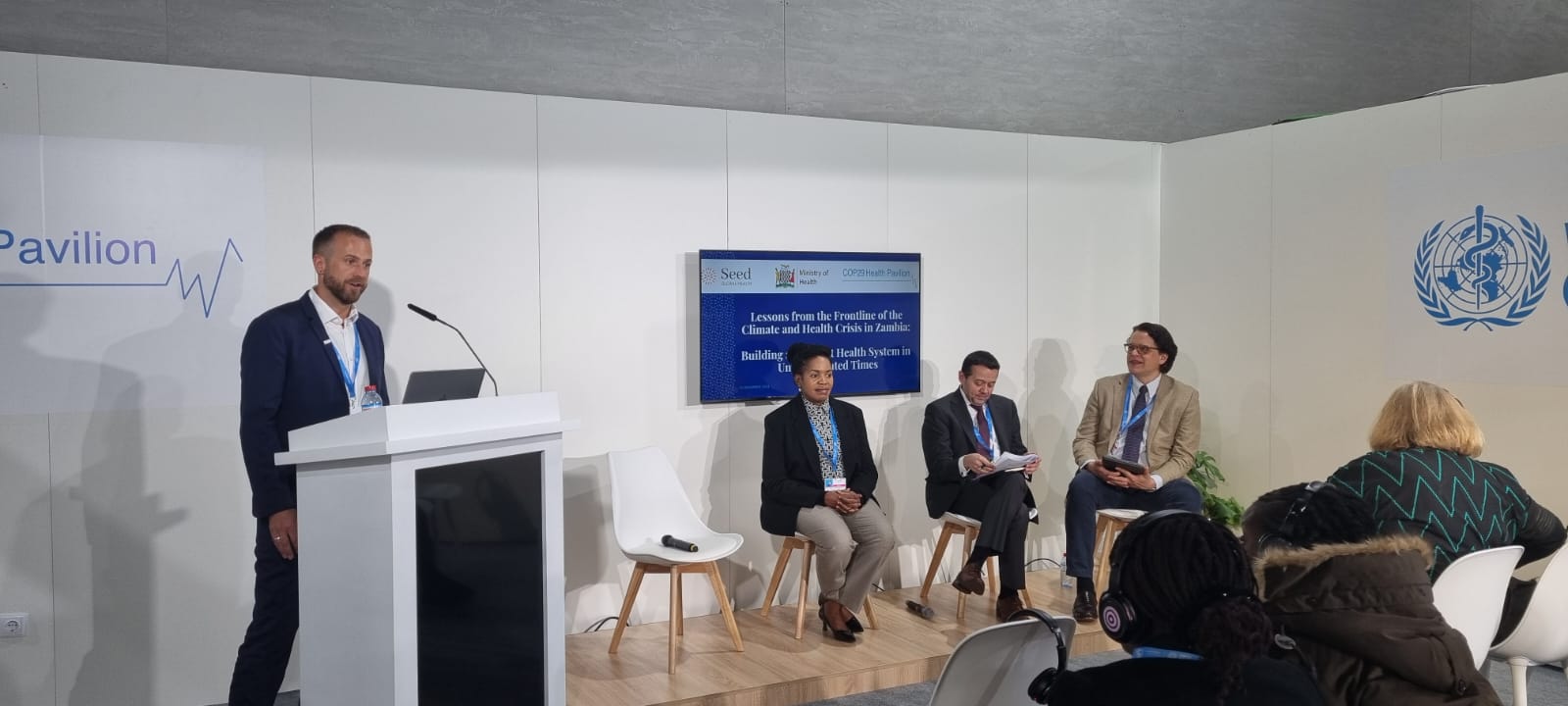
COP29 Roundup
Health is the defining argument for climate action

At COP29 in Baku, Azerbaijan, Seed Global Health was among the few health-focused NGOs present, highlighting the link between emissions reduction and health and advocating for increased flexible financing to build adaptive, resilient health systems.
We partnered with the Ministries of Health from Zambia, Uganda, and Malawi to spotlight frontline challenges and solutions at the intersection of health and climate and to convey the message that investing in health workers is climate action.
COP29 outcomes
Headlines about financing, particularly the New Collective Quantified Goal, will define this COP, highlighting deep divisions between the Global North and South and a missed opportunity to secure the funding crucial for adaptation.
Sierra Leone’s Climate Minister Jiwoh Abdulai summed up the reaction from many in the Global South, saying “we are extremely disappointed in the outcome” and it showed a “lack of goodwill” by high-income countries. Expect these conversations to dominate in the run up to COP30.

However, COP29 marked some progress integrating health into climate negotiations:
- COP29 Continuity Coalition: A promising alliance of five COP presidencies (UK, Egypt, UAE, Azerbaijan, Brazil) committed to embedding health in future COP agendas.
- COP29 Declaration on Multisectoral Actions Pathways (MAP) to Resilient and Healthy Cities: A declaration endorsed by 160+ stakeholders aimed at catalyzing urban climate finance. We must ensure this translates into action to protect health and it must deliver more support to cities in the Global South.
- Health Impact Investment Platform (HIIP): The launch of the milestone initiative to direct more adaptation and climate funding to health in low-income countries, prioritizing public and primary healthcare.
What’s next? Despite progress, bold action to slash emissions and scale adaptation financing remains critical, but elusive. Climate-driven health crises are threatening lives, destabilizing economies, and exacerbating global inequities right now – not in some distant future.
- Health must be central to climate policies – from thematic COP days to national commitments (NDCs), to adaptation goals.
- Encouragingly, Brazil signaled intentions to accelerate health-focused climate action at COP30, with a day dedicated to health, and suggested they will not shy away from the phase out of fossil fuels and possible taxes on coal, oil and gas.
Missed us at COP? Here are the key takeaways from Seed-hosted events
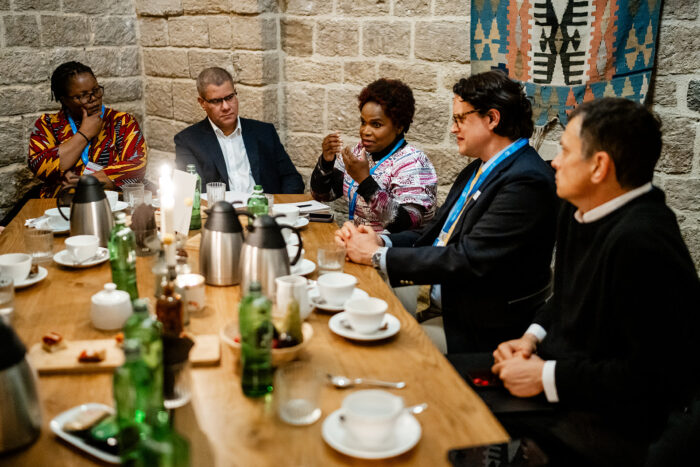
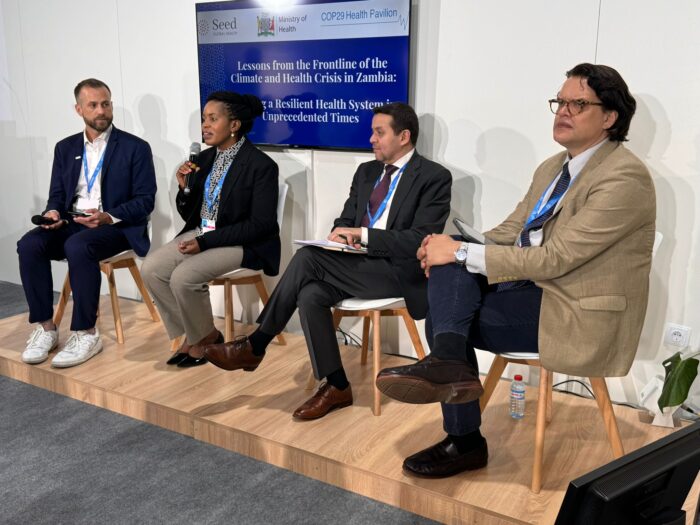
Lessons from the Frontline of the Climate and Health Crisis in Zambia: Building a Resilient Health System in Unprecedented Times
- In the WHO Pavilion, our event featured Zambia’s Ministry of Health, the World Bank, and Seed Zambia Country Director Dr. Bassim Birkland.
- Panellists discussed practical solutions Zambia has taken to build resiliency in their health system.
- Dr. Birkland powerfully said: “One of the greatest things we can do to build a more climate resilient health system is to train healthcare workers.”
Building strong health systems in the climate crisis: rethinking investments at a time of urgency
- At a high-level roundtable with partners including Rockefeller Foundation, Bill and Melinda Gates Foundation, WHO, Commonwealth, and Ministries of Health, we discussed barriers to adaptation financing.
- The consensus? Fragmented efforts and siloed funding hinder progress. Countries need long-term, flexible financing to address health impacts effectively.
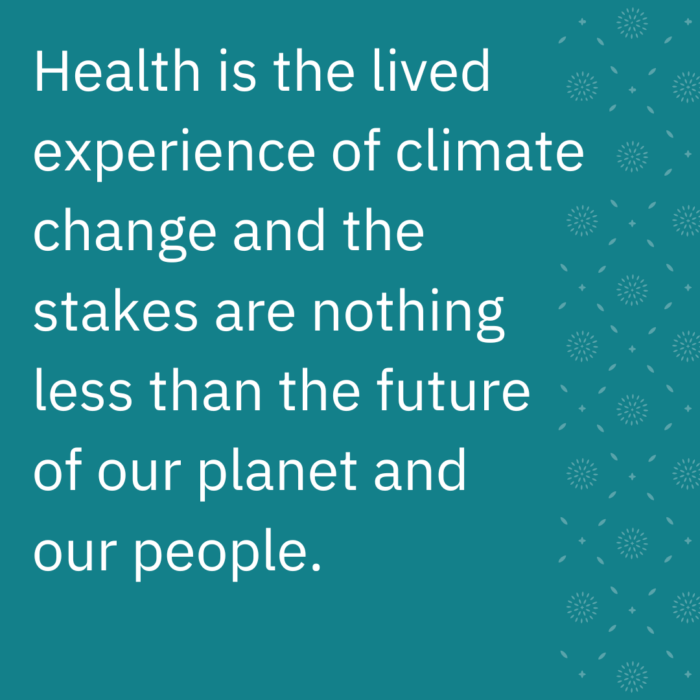
In summary, health isn’t just another argument for climate action – it’s the defining argument. Health is the lived experience of climate change and the stakes are nothing less than the future of our planet and our people.

